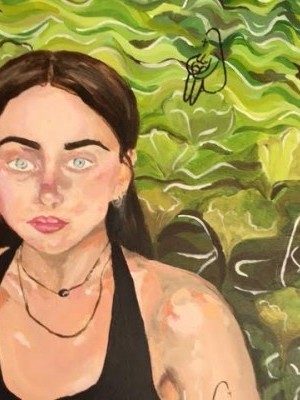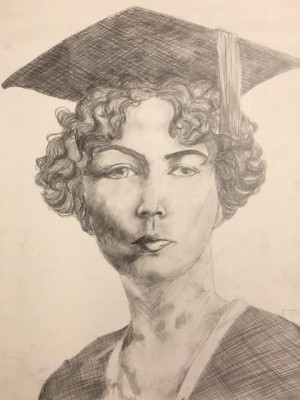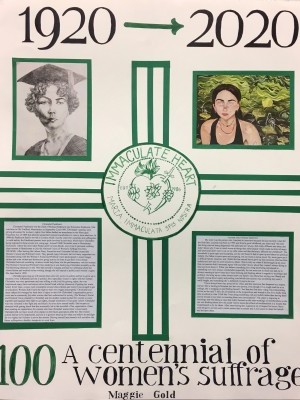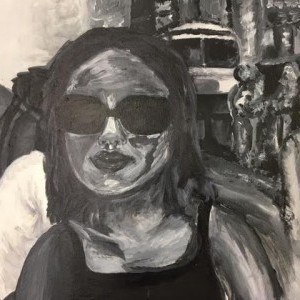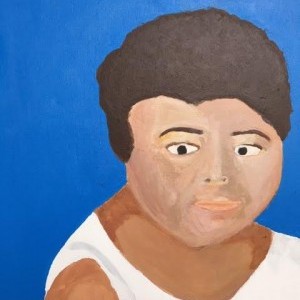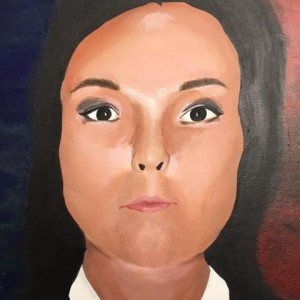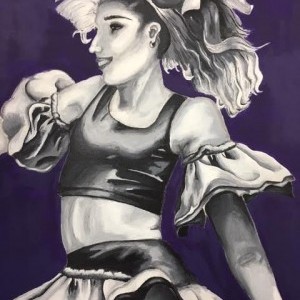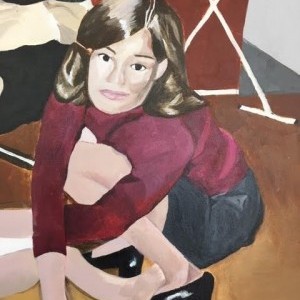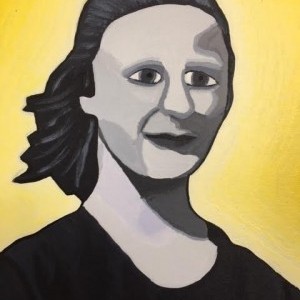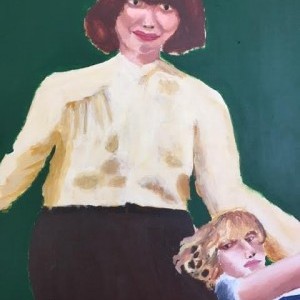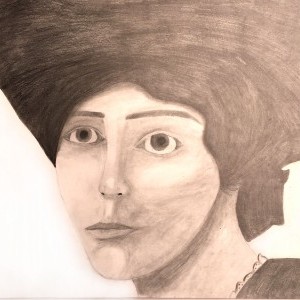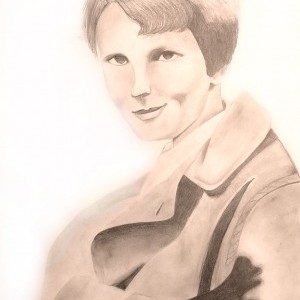Maggie Gold
Immaculate Heart High School | Los Angeles, CA | 9-12th Grade
Inspirational Family Member
Lucinda Gold, My Sister
My sister was the person who I decided to interview because she just recently voted for the first time. Lucinda was born in 1999, and lived a good childhood. My sister said “the only bad thing was not being diagnosed with ADHD and so I always felt really different and antsy and didn’t know why I was so much worse at things than other people which made me kind of angry and emotional and I took it out on my little sister and that definitely affected her childhood”.
Our household is quite open and accepting, yet she still found it hard to open up and share her political beliefs. Our father is quite open and accepting, but my mom is not as much. My mom grew up in a difficult family situation, and I think this has caused her to grow up into someone who has their beliefs and isn’t easy to come around to others. That is why my sister if she brought up an issue that our parents didn’t necessarily agree with and didn’t know about they weren’t always dying to find out more about it. When you believe something for a long time being introduced to something new isn’t always comfortable (especially for our mom not so much our dad, he is always wanting to know what she’s been learning and thinking about in regards to sociology and politics). Growing up my sister always knew our family was liberal but saying you’re liberal and actually caring about equity and putting your beliefs into actions was something she wasn’t really taught, and something she is definitely trying to do now.
Historical Figure I Admire
Christabel Pankhurst
Christabel Pankhurst was the child of Richard and Emmeline Pankhurst. She was born in Old Trafford, Manchester on September 22nd 1880. Christabel’s parents were strong advocates for women’s rights. Her father drafted an amendment to the Municipal Franchise Act of 1869 that allowed unmarried women householders to vote in local elections. In 1888 the Pankhurst family moved to London which was the center for socialists and suffragettes. As said earlier, the Pankhurst parents were quite involved in activities, which led to Christabel being exposed to these events at a young age.
Around 1898, Christabel went to Manchester University where she met Esther Roper and Eva Gore-Booth, who tried to persuade working-class women in Manchester to join the National Union of Women’s Suffrage Societies (NUWSS). After leaving the Labour Party, Emmeline and Christabel left and created the Women’s Social and Political Union. They gained many followers but lost many supporters too. Christabel along with the Women’s Social and Political Union participated in many hunger strikes and even violent and destructive group actions in order to get their voices heard. Christabel believed escalating violence would help them win the parliamentary vote for women. The Women’s Social and Political Union ended as it was destroying Christabel mentally as she was becoming obsessed. In the 1920 she moved to Canada and then to California where she slowed down and worked on her writing, though she still stayed in politics and women’s rights. She later died in 1958.
Christabel growing up with parents that were very active in politics led her to grow up to become a very influential activist in politics also, especially women’s rights with her mother. Christabel was very passionate and was willing to risk it all for gaining rights, she was imprisoned many times and almost drove herself mad with her obsession of getting her wants heard. In her time, women were considered second class citizens and weren’t encouraged to get an education. Women didn’t have the right to their own wages and property. Christabel and many others felt wronged by their lack of rights in their life. Christabel’s organization gave a voice and a community for other women that felt undermined in society. The Women’s Social and Political Union created by Christabel and her mother created a place for women to come together and organize their fight to get rights, though sometimes it was quite violent.
Christabel was very invested in her fight and sacrificed a lot even her mental health. She became so obsessed with getting heard that it eventually led to the downfall of her organization. Other than creating an organization for women who like Christabel wanted their voices heard, Christabel did not leave much of an impact on the future generations after her. Her violent actions led her to be imprisoned, and yes it is good to stand up for what you believe in and fight for you rights, but violence is never the answer. Driving oneself into insanity will not allow the future suffragettes a healthy standpoint to work from.
SOURCES +
What the Project Means to Me
I have always been very proud of my sister, and this interview has deepened my respect for her. She is starting to blossom into her own person, even though it is a rough road for her in college, she is trudging on and finding herself. I feel that her first time voting was empowering for her as she said “I did a lot of research on the propositions and waited in line for a really long time at school to vote. It felt like I was doing something with my beliefs rather than having them just sit around in my brain or inserting them into conversations”. My sister is majoring in sociology and was taking a class that really focused on the inter-workings of neoliberalism so she was thinking about how she could vote to lessen the effects of neoliberalism in a society that is dominated so by its ideals. After interviewing her, I gained a lot of respect for her as I have seen her grow up into such a smart person that is present and is not scared to share her beliefs and act upon them.
Explore the Archive
More From This Class
Click on the thumbnails below to view each student's work.Deadline Extended
There's still time to join Women Leading the Way.
Become a part of our storytelling archive. Enroll your class today.
Join the Project

